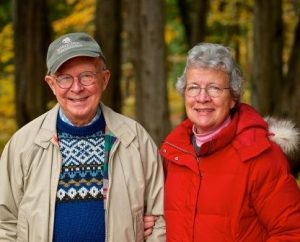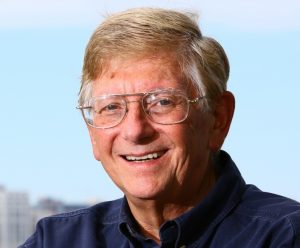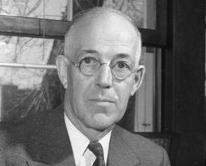WCHF Announces 2018 Inductees
Roy and Charlotte Lukes, George Meyer and Arlie Schorger
The Wisconsin Conservation Hall of Fame Foundation (WCHF) has announced the selection of four conservation leaders for induction on April 14, 2018 at 10:00a.m. at the Sentry Theater in Stevens Point. The public is invited.
A coffee reception will be held at 9 a.m. prior to the Induction Ceremony on Saturday, April 14th at Sentry Theater in Stevens Point. Following the ceremony, there will be a luncheon at 12:30 p.m. at the Sentry World Center. The Induction Ceremony and Coffee Reception are free and open to the public. Reservations for lunch ($25 per person) may be made online or by calling Schmeeckle Reserve at 715-346-4992.
Saturday, April 14, 2018
Sentry Theater in Stevens Point
Program: 9 a.m. Coffee Reception (free)
10 a.m. Induction Ceremony (free)
12:30 p.m. Luncheon – ($25/person)
The inductees this year include a couple who have spent their lives as “Partners in Nature” protecting the natural heritage of Door County, a Secretary of the Wisconsin Department of Natural Resources (WDNR) who never retired, and an almost forgotten UW-Madison Wildlife Professor and philanthropist who contributed directly to Leopold’s Conservation Legacy.
Roy (1929-2016) and Charlotte (1944- ) Lukes
Door County naturalists, Roy and Charlotte Lukes, spent their lifetimes protecting the natural beauty of the peninsula and sharing its magic through their teachings, writings, and personal charm. As “Partners in Nature,” they built the Ridges Sanctuary into a center for conservation education, research, and advocacy. They educated and inspired citizens of Door County and the State through their many research efforts, lectures and nature walks, books and newspaper columns. Although Roy has passed on, Charlotte has continued to write the weekly column “Door to Nature” for the Door County Pulse.
Roy and Charlotte were also instrumental in protecting many of the county’s most scenic gems and ecologically valuable habitats. They saw their scientific research on the flora and fauna of Door County as a cornerstone to their work in conservation related education, policy and public leadership. In recognition of their lifelong collaboration, the couple received nearly thirty awards from numerous educational, literary, civic and environmental organizations.
George Meyer (1947 – )
A highly respected and influential Secretary of the Wisconsin Department of Natural Resources (WDNR), George Meyer was instrumental in creating and advancing major conservation and environmental policies affecting all of the State’s natural resources. During his three decade career with the WDNR, Meyer worked on many of the most challenging, and often controversial, policy issues affecting Wisconsin.
In addition to his years in public service, Meyer spent much of his life promoting citizen participation and the advancement of conservation organizations. Since retiring from the WDNR in 2002, Meyer has led the Wisconsin Wildlife Federation, serving as its first Executive Director. With 200 affiliate organizations statewide, the Federation promotes sound resource management through its educational and advocacy programs.
Throughout his career, he has been respected for his integrity, leadership, and unassuming personality. He has received many awards and much recognition for his contributions to conservation.
Arlie (Bill) Schorger (1884 – 1972)
As a man of many talents, Arlie (Bill) Schorger excelled as a chemist, inventor, businessman, and wildlife conservationist. In conservation circles he is most well known for his work as a nature historian and for his books on the life histories of Wisconsin’s Wildlife and man’s impact on them. His 1955 award winning book, The Passenger Pigeon: Its Natural History and Extinction helped advance a global concern for wildlife management, biodiversity and the new field of conservation biology.
He became a Professor of Wildlife Management after retiring from his business career in paper chemistry and devoted the rest of his productive life to advancing conservation through his research and writings. As a personal friend of Aldo Leopold, he also played a pivotal role in launching Leopold’s career and conservation legacy.
He was also known for his public service, philanthropy and leadership in state and national conservation organizations. He served on the Wisconsin State Conservation Commission (now the WDNR Board) and as President of the Wisconsin Academy of Science, Art and Letters. As a philanthropist, he contributed to many conservation, literary and civic programs.
The Wisconsin Conservation Hall of Fame
The Wisconsin Conservation Hall of Fame and Visitor Center, located at Schmeeckle Reserve in Stevens Point, was established in 1985 to advance the conservation legacy of Wisconsin and now recognizes 88 leaders who have contributed significantly to it. WCHF is a cooperative venture of 32 State-wide conservation organizations. Individuals may be nominated for induction by member organizations or by the public. Based on a set of criteria, nominees are selected for induction by the WCHF Board of Directors and an independent Board of Governors.



